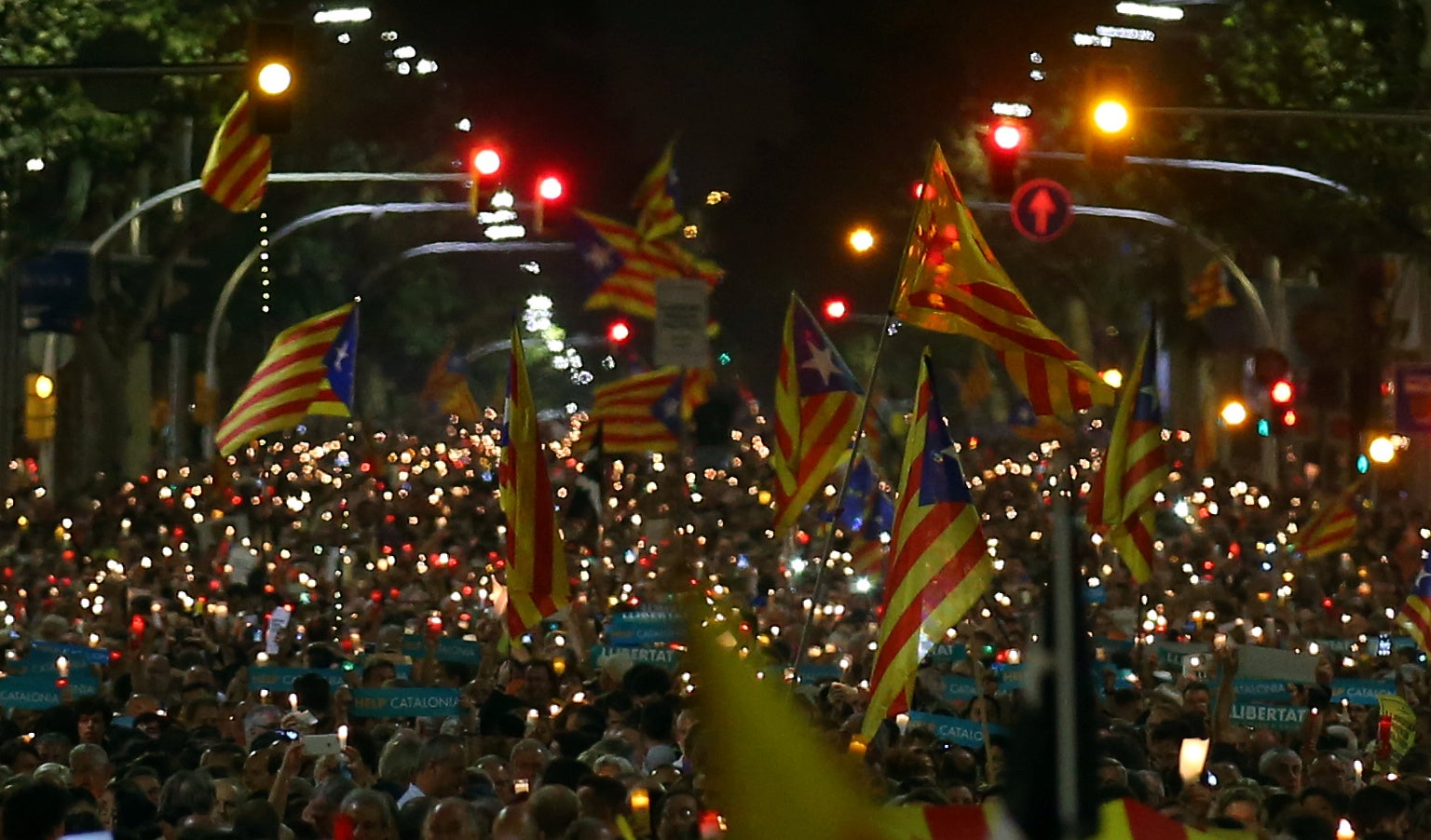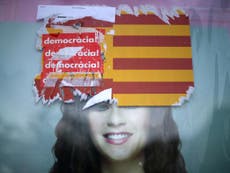By refusing to address the Catalan crisis, the EU shows itself at its worst
Whatever the independence vote’s legal basis, surely condemning violence by the authorities against innocent people isn’t too much of a stretch?


There are a million and one economic reasons why Britain’s withdrawal from the EU is likely to result in something approaching a disaster. However, that isn’t to say the European Union is beyond criticism; far from it. And its reaction to the constitutional crisis currently enveloping Spain is a case in point.
As we heard myriad times during the referendum campaigns, the EU means something rather different to many on the continent than it does to people in the United Kingdom. For us, it has largely been about trade and about global influence – and, to a lesser degree, about developing a shared European identity (although younger generations might argue that, for them, this latter point takes precedence).
For continental Europe, the EU was primarily established as a means to avert a repeat of catastrophic war between nations. Yes, it has helped economic growth (though not equally) and has enabled Europe to present – at times – a united face to the rest of the world. But at its heart, the EU is a political project, designed to prevent a resurgence of nationalism and of militarism; and for its most ardent proponents, it remains far from finished in terms of the greater federalisation of Europe. Indeed, for those who oppose the EU, both in the UK and elsewhere, it is precisely that desire to empower the union even further which causes such anxiety.
Yet for all that the EU represents (to its supporters at least) a fundamentally progressive ideal, it is nonetheless constrained by the conservative realities faced by any club with 28 (soon to be 27) members, each of which is answerable to its own group of people, who in turn have their distinct concerns, their discrete pre-eminent ideals and their separate national identities. The European Union may have been set up in response to the horrors of extreme nationalism in the 1930s and the global war that followed, yet paradoxically it has perpetuated the nation state narrative that has dominated European history for 200 years.
As a club of national members, it cannot do otherwise – unless or until such time as all the members, each authorised by their own constituent peoples, agrees to be effectively subsumed within a European super-state. Despite the hopes of some in Brussels, that time has not yet come, nor frankly is it likely to.
One of the consequences of this in practice is that, when it comes to national politics, EU officialdom invariably feels obliged to hold its tongue. While that largely creates no difficulties, at times it has the effect of making the organisation appear impotent when confronted by the very things it was supposedly set up to prevent – nationalism and conflict within Europe.
The situation in Spain has shown these limitations to a striking degree. Plainly the question of Catalan independence is complex one, not least in terms of establishing whether a majority of the population there actually wishes formally to break from Spain. Moreover, there are regional independence movements within other parts of the EU: a pronouncement from Brussels on Catalonia has much wider consequences.
Yet the EU’s reluctance to become embroiled has meant it refuses even to comment on the very obvious brutality of Spanish police officers who sought to prevent the Catalan referendum. Whatever the vote’s legal basis, surely condemning violence by the authorities against innocent people isn’t too much of a stretch, is it? One might have thought the EU could also be interested in reports of violence by Spanish neo-Nazis opposed to Catalan independence, as well as claims those extreme nationalists have been given free reign by police.
Of course it is an oddity of Western European history that in its post-war period it quite successfully confronted the evils of fascism as it had been manifested in Germany and Italy: the rebuilding of Europe after 1945 demanded it. Yet Spain’s fascist dictatorship took a different course, dying a natural death only in the 1970s.
Even though the country joined the EU in 1986, it remains a matter of debate whether the Franco era – in all its nastiness, including the repression of regional culture – has ever been properly addressed. No wonder the present political conflict between Madrid and Barcelona is becoming so bitter and so volatile: the echoes of the past for both sides are all too obvious.
The failure of the EU to respond effectively to the break-up of the former Yugoslavia in the 1990s led to the realisation that a common approach to foreign policy was necessary in certain circumstances. But the Catalan independence movement – which pits Catalan “national” identity against Spanish national pride – is showing its limitations, with the EU conflicted between an intrinsic desire to oppose nationalism in all its forms and to confront the organisational reality of a structure which takes the notion of nation states as a given.
None of this should lead to the conclusion that departing the EU makes sense for Britain. But in its approach to Spain’s current, troubling problems, we are seeing the EU at its worst.



Join our commenting forum
Join thought-provoking conversations, follow other Independent readers and see their replies